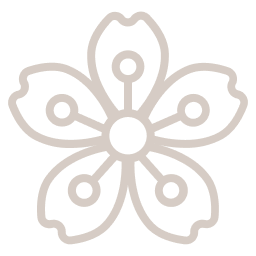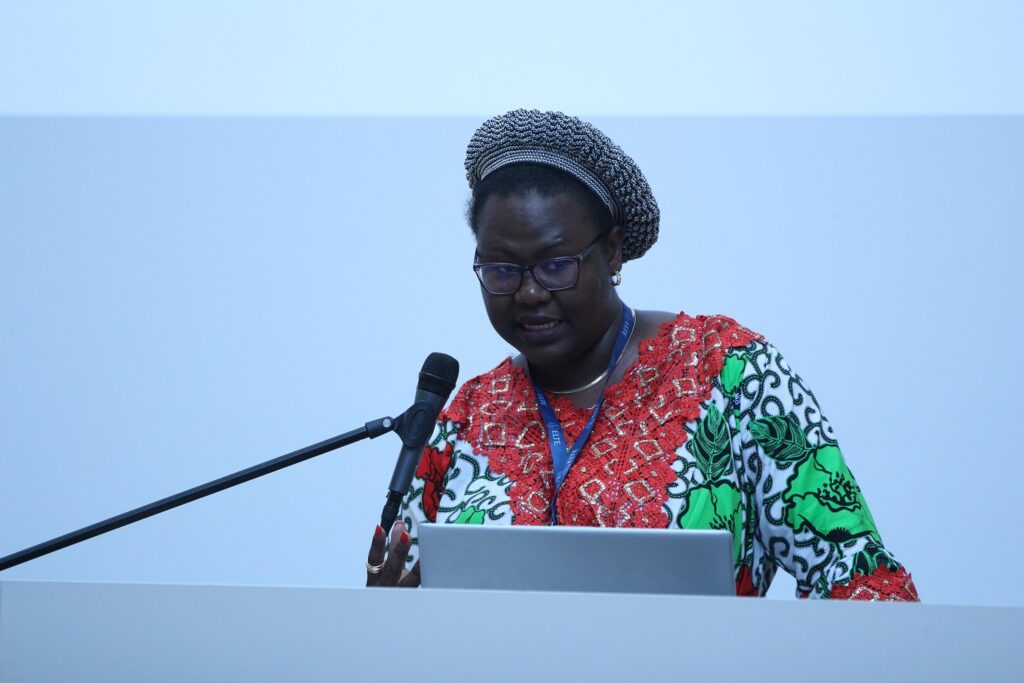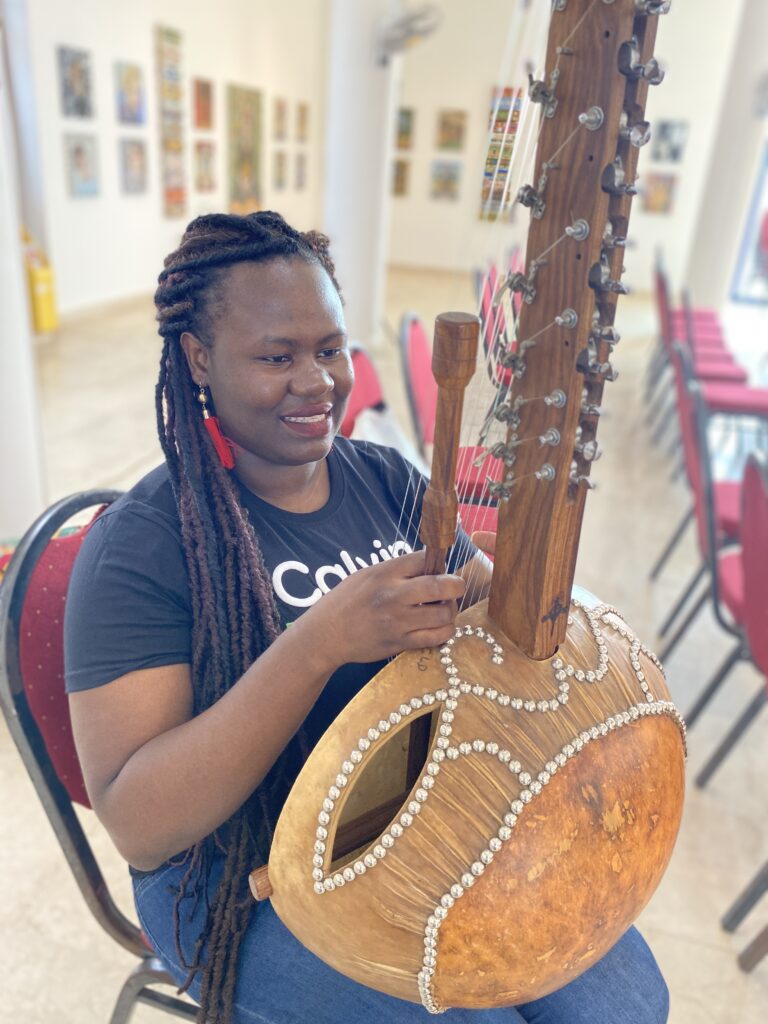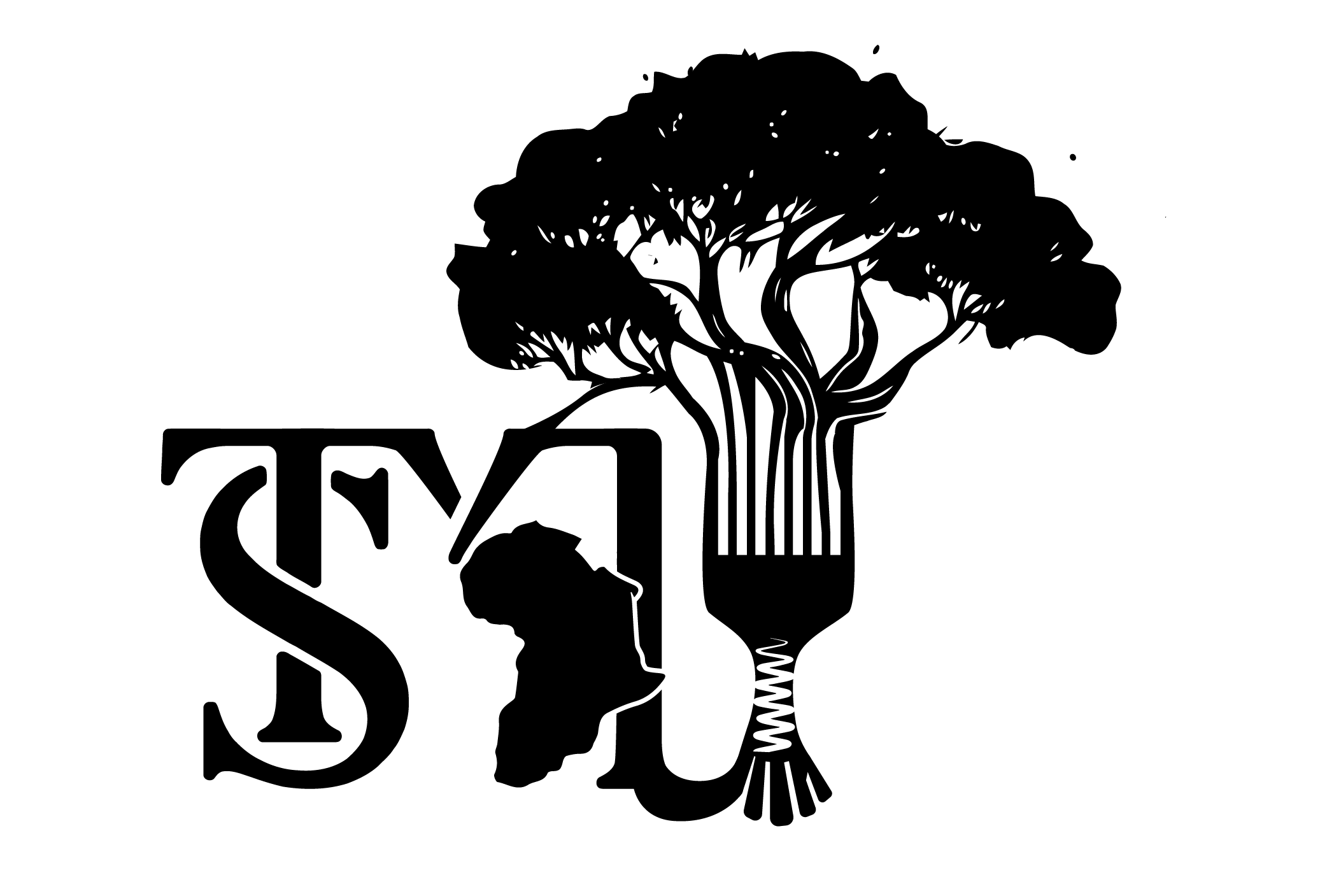About
Discover the Story Behind the Work Passion, Purpose, and Impact

Who I Am
Tiako Djomatchoua Murielle Sandra is my name! I am deeply passionate about preserving and revitalizing cultural heritage, particularly through inclusive and diverse approaches to knowledge production. Currently enrolled in French and Francophone Literatures and Cultures at Princeton University, I work at the intersection of cultural studies, multimedia archival research, digital humanities, gender and sexuality, and community engagement to uncover and share untold stories surrounding women, polity, memory, and societal change in East and Central Africa.
Bringing a diverse skill set to every project, I combine technical expertise with creative problem-solving to approach questions and challenges from multiple angles. My work is guided by a strong commitment to ethical research, care, innovative technology, and participatory methodologies. These approaches empower communities to reclaim and reinterpret their cultural narratives, while challenging colonial constructs and debunking manipulated narratives that have historically marginalized women.

From Cameroon to Princeton : A Journey Through Crowns and Thorns
My journey began in Cameroon, where I developed a deep appreciation for the richness and diversity of African cultures. This passion led me to pursue an undergraduate degree in Bilingual Letters, with a concentration in Arabic. I graduated as the top student in both the French Department and the Faculty of Arts at the highly selective and rigorous University of Buea.
The experience of living through war and the ongoing Anglophone crisis during my undergraduate years nurtured a profound commitment to justice, transformative politics, and education for change and peace. On the eve of my graduation, I found myself trapped in a dress shop, crawling on my belly to a hair salon for safety amidst gunfire at Malingo Junction. This tragic event, upon my return to Buea for graduation, rekindled and resurrected days and nights of fear and despair, punctuated by countless gunshots. It was this traumatic experience that solidified my resolve to advocate for social justice and care through both academic and professional means
My personal experience of the Anglophone crisis shifted my academic path from the humanities to the social sciences. I applied for master’s degree programs and was admitted to two prestigious programs at the International Relations Institute of Cameroon (IRIC). Pursuing the International Communication and Public Action (CA2D) graduate program during the day, and the International Cooperation and Humanitarian Affairs (CA2D) at night, I spent most of my days on campus, determined to find inclusive and impactful solutions to the political handling of the Anglophone crisis. However, due to my father’s declining health and the financial hardships that followed, my academic path took an unexpected turn. Funding my studies became a challenge, as my father opted for an installment plan to pay the tuition fees of approximately 850,000 CFA (which would be equivalent to more than $1,500 USD today). Despite these difficulties, my academic excellence caught the attention of Miami University, which offered me a funded master’s program in French
Applying to PhD programs in the United States of America during the COVID-19 pandemic, amidst other academic responsibilities—such as passing general and comprehensive master’s degree exams, teaching and tutoring an undergraduate classes, working at a writing center, publishing my first articles, participating in conferences, and grieving my father’s death—was a Herculean task that I now reminisce about with pride. I was honored to be selected by several top institutions, including Emory University, Johns Hopkins University, Princeton University, the University of Washington in St. Louis, Boston University, the University of Wisconsin-Madison, the University of Texas at Austin, Indiana University, and the University of Iowa, among others, each offering competitive fellowship packages. I chose Princeton University for its promise of interdisciplinary and transdisciplinary research opportunities—key elements for innovation in the field of interdisciplinary and applied cultural studies. So far, my research interests and curiosity have been fulfilled through numerous trips around the world, during which I encountered the resources that informed my dissertation.
Currently, I am a PhD candidate in French and Francophone Literatures and Cultures, pursuing certificates in Gender and Sexuality Studies and Digital Humanities. My dissertation project focuses on the Female Archeologies of Power and Powerlessness in East-Central Africa: Polity, Memory, and Change in (Post)Colonial Luba Traditions. Throughout my academic journey, I have remained committed to promoting diversity and inclusion for excellence and innovation, engaging in trans- and interdisciplinary research, and ensuring that African cultural heritages and traditions are not only accessible but also recognized as independent and sovereign systems of knowledge. These systems can serve as reliable sources of value creation for sustainable education, development, and empowerment.
Values & Purpose
Commitment to DECONGESTED Decolonial and Postcolonial
My scholarly commitment to decolonial and postcolonial thought is deeply rooted in interdisciplinary research that centers community engagement and participatory approaches to cultural heritage. At the heart of my work lies a dedication to redressing the enduring epistemic and material violences of colonialism, particularly within knowledge institutions such as Galleries, Libraries, Archives, and Museums, or GLAM. A central pillar of my research is the advocacy for the repatriation and restitution of African heritages and knowledge systems. I examine ethical and methodological frameworks that enable the return of cultural artifacts and intangible knowledge to their source communities, with a specific focus on amplifying the voices of African women, whose histories and contributions have been systematically marginalized or erased in colonial narratives. This work seeks to restore agency and historical continuity to communities long dispossessed by imperial extraction. I approach these issues through an intersectional lens, recognizing the interconnectedness of race, gender, class, and geography in shaping lived experiences under and beyond colonial rule. By applying intersectional frameworks, my scholarship fosters a more nuanced understanding of power, resistance, and resilience within postcolonial contexts, ensuring that diverse subjectivities are acknowledged within decolonial discourse. To further this inquiry, I have developed what I term an “Eco-optical framework for (post)colonial archival research,” a critical methodology that interrogates the ecological, spatial, and power-laden dimensions of archival structures. This framework allows for a re-visioning of archives not as neutral repositories, but as contested sites shaped by colonial governance. It emphasizes the need to reclaim, reconstitute, and foreground the voices of marginalized groups, especially women, in ways that honor their lived realities and epistemic sovereignty. Central to my practice is community-based research, which prioritizes collaboration with local communities as co-creators of knowledge. I believe that cultural heritage initiatives must be grounded in the agency and self-representation of the communities they concern. This participatory model challenges top-down modes of knowledge production and promotes a shift toward community-centered practices that respect cultural sovereignty, local epistemologies, and collective memory. In alignment with these principles, I actively engage with multimedia and digital technologies as tools for resistance, reclamation, and cultural preservation. Through digital storytelling, oral history archives, and interactive platforms, I explore innovative ways to challenge dominant colonial narratives and amplify endogenous perspectives. These multimedia initiatives serve not only as archives of survival, but also as acts of defiance against historical erasure. Ultimately, my scholarship is driven by a commitment to confronting the complex legacies of colonialism and co-constructing more equitable, inclusive, and ethically grounded understandings of African and Black heritages. By centering community voices, embracing intersectionality, and reimagining archival practices, I aim to contribute to a decolonial praxis that is both transformative and restorative.
Diversity and Inclusion for Innovation
My commitment to diversity and inclusion is a cornerstone of my approach to fostering innovation in scholarship, cultural practice, and community engagement. I champion interdisciplinary collaboration, actively weaving together insights from fields such as gender studies, African studies, digital humanities, and postcolonial theory to generate creative, holistic solutions that transcend traditional academic boundaries. This convergence of perspectives allows me to address complex cultural questions with greater depth and nuance. As an educator and mentor, I prioritize creating inclusive learning environments where students from diverse backgrounds feel seen, supported, and empowered. I provide guidance, resources, and platforms that uplift underrepresented voices, fostering a sense of belonging and enabling learners to thrive as confident, critical contributors to knowledge production. My cultural heritage initiatives are grounded in community-based methodologies that center the agency of marginalized communities. Representation is not enough; communities must be active participants in shaping their own narratives. This principle of community empowerment is central to my work. When people reclaim their stories and engage in self-representation, they become agents of innovation, articulating their own values, needs, and visions for the future. To strengthen this agency, I focus on capacity building through workshops, seminar series, and collaborative dialogues that equip individuals and communities with the skills and knowledge to lead cultural projects and drive local innovation. These initiatives are designed to be accessible, participatory, and responsive to community contexts. I am deeply committed to digital inclusion, leveraging digital humanities tools such as digital storytelling, interactive archives, and multimedia platforms to democratize access to cultural resources. These technologies enable broader participation in the arts and humanities, particularly among historically underrepresented groups, while amplifying indigenous perspectives and challenging dominant narratives. Underpinning all of my work is a strong ethic of care and responsibility. I approach research and education with deep respect for cultural significance, lived experience, and community sovereignty. Whether through provenance research, repatriation efforts, cultural education, or creative industries, I strive to bridge the gap between academic expertise and community knowledge. By centering local epistemologies and advocating for culturally sensitive, socially just, and sustainable practices, I aim to support not only cultural preservation but also women’s empowerment, social transformation, and inclusive development. For me, innovation does not emerge from isolation, but from equity, collaboration, and collective ownership. It is in spaces of respect, reciprocity, and inclusion that transformative change becomes possible.
Interdisciplinary, Transdisciplinary, and Multimedia (Archival) Research
My research is defined by a robust integration of interdisciplinary, transdisciplinary, and multimedia methodologies, particularly within the realm of archival inquiry, enabling me to reimagine cultural heritage as an inclusive, dynamic, and socially engaged practice. I draw from a wide range of fields, including gender studies, African studies, digital humanities, cultural geography, and postcolonial and decolonial studies, to build an interdisciplinary framework that allows for a nuanced and comprehensive understanding of female heritages, cultural memory, and the power structures embedded in historical narratives. By synthesizing theories and methods from these disciplines, I address complex questions of identity, representation, and epistemic justice in ways that single-discipline approaches often overlook. Beyond the boundaries of the academy, my transdisciplinary practice emphasizes the interconnectedness of knowledge systems, actively bridging scholarly research with lived community experiences. I collaborate with local communities as co-creators of knowledge, using participatory methods that ensure research is culturally grounded, ethically responsible, and responsive to local needs. This approach not only centers marginalized voices but also generates innovative, context-specific solutions to the ongoing effects of historical erasure and cultural silencing. A central pillar of my work is multimedia archival research, through which I use digital humanities tools to transform how we engage with the past. I integrate visual and audiovisual storytelling, digital narratives, and interactive platforms to bring to life the often overlooked histories of African and Black women. These forms of expression challenge dominant colonial narratives and offer richer, more layered representations of cultural identity. I also engage in the critical recovery and repurposing of colonial archives, re examining, deconstructing, and recontextualizing these materials to uncover hidden stories and increase the accessibility and visibility of marginalized heritages. I place a deliberate and sustained focus on female power structures, traditions, and institutions, centering African women as knowledge holders, cultural custodians, and agents of change. By recovering and highlighting matrilineal systems, women led practices, and Indigenous forms of leadership, I challenge the dual erasures of patriarchy and colonialism, affirming women’s essential role in sustaining cultural continuity and leading resistance. Rooted in the belief that innovation arises from the convergence of diverse epistemologies, I blend art history, anthropology, data science, technology, and cultural studies into a research ethos that is inclusive, equitable, and transformative. For me, knowledge production is not a neutral act, but a deeply ethical one, oriented toward justice, community agency, and the reclamation of African and Black ways of knowing.
Education with Heritage Cultures, Archives, and Oral Traditions
I believe that education must be deeply connected to heritage cultures, archives, and oral traditions, not only to preserve knowledge, but to transform how we teach, learn, and understand the world. In my work, I prioritize the integration of heritage into education, weaving cultural histories, practices, and values into learning environments so that students can see themselves reflected in their curricula and develop a deeper sense of identity, belonging, and pride. I critically engage with archival practices, questioning whose stories are preserved, how they are represented, and who has access, especially when it comes to marginalized and African-descendant communities. This critical lens allows me to challenge colonial narratives and create space for more equitable and truthful historical understandings within educational contexts. I place great value on oral traditions as powerful forms of knowledge transmission, honoring the wisdom of elders, women, and community knowledge keepers whose stories have often been excluded from formal records. By centering these voices in education, I help ensure that Indigenous and local epistemologies are not only preserved but actively taught and respected. My approach is rooted in community engagement, I create spaces where communities can share their histories, participate in knowledge co creation, and shape the educational frameworks that represent them. This collaborative model transforms learning from a top down process into a dynamic, inclusive dialogue. To make these narratives more accessible and engaging, I use innovative teaching methods, integrating digital tools, multimedia storytelling, and interactive archives that resonate with diverse learners, particularly those from underrepresented backgrounds. Above all, my goal is to foster critical thinking, inviting learners to question dominant narratives, analyze power structures in history and culture, and develop a deeper awareness of social justice. For me, education is not just about information, it is a transformative practice that honors cultural sovereignty, sustains diverse ways of knowing, and empowers future generations to build more inclusive and equitable futures.
African Digital Cultural Knowledge Production and Endogenous Data Sovereignties
I am deeply committed to reimagining African cultural heritage as a living, dynamic force in education, knowledge production, and community empowerment, especially through the lenses of African digital cultural knowledge production and endogenous data sovereignties. In my work, I emphasize the transformative potential of digital platforms and storytelling to center African voices, histories, and epistemologies. By using digital tools to create and share rich, multimedia narratives, I strive to make African cultural heritage more visible, accessible, and engaging, moving beyond colonial frameworks that have long dominated historical and cultural representation. These digital narratives are not just about preservation, they are acts of reclamation and innovation, offering new ways to connect with identity, memory, and resistance. A core principle of my practice is collaborative knowledge creation. I believe that authentic cultural knowledge must be co produced with local communities, scholars, artists, and knowledge keepers. This inclusive approach ensures that diverse perspectives are honored and that the knowledge we generate reflects the lived realities and values of the people it represents. It also challenges top down, extractive models of research and replaces them with ethical, reciprocal partnerships. I advocate for the development of digital archives rooted in African cultural contexts, spaces that can house oral histories, photographs, audiovisual materials, and other multi modal expressions of heritage. These repositories are not neutral, they must be designed with intention, guided by community input and cultural protocols. I am particularly attentive to how digital infrastructures can unintentionally replicate colonial power dynamics, and I actively work to challenge these patterns by centering African epistemologies and ensuring that digital curation is not only technically sound but culturally grounded. At the heart of my research is a commitment to endogenous data sovereignty, the right of African communities to control, govern, and represent their own cultural data. This means communities should decide how their histories, traditions, and identities are documented, stored, shared, and used. I champion ethical data practices that respect provenance, context, and consent, ensuring that cultural knowledge is not exploited or misrepresented. By reclaiming agency over their data, communities can recover lost or silenced narratives, assert self determination in cultural expression, and build intergenerational continuity. My methodology blends digital humanities with ethnographic sensitivity, recognizing that data is never abstract, it is embedded in social, spiritual, and historical contexts. This intersection allows me to approach knowledge production holistically, honoring both technological innovation and cultural depth. Through workshops, community based projects, and participatory research, I support capacity building and digital literacy, empowering individuals to become stewards of their own heritage. Ultimately, I see cultural heritage as a cornerstone of sustainable education and empowerment. By integrating ancestral knowledge, oral traditions, and community led archives into learning environments, I aim to create educational experiences that are inclusive, critical, and transformative. I am especially focused on uplifting women and marginalized groups, supporting them to reclaim their narratives as sources of strength, innovation, and leadership. For me, this work is not just academic, it is a commitment to justice, dignity, and the future of African knowledge systems on their own terms.
Cultural Entrepreneurship and Leadership on, with, by, and for African Youth and Women
I am deeply committed to advancing cultural entrepreneurship and leadership that is on, with, by, and for African youth and women, an approach rooted in self-representation, collective agency, and systemic change. This framework is not just about inclusion, but about shifting power: ensuring that young Africans, especially women and girls, are the authors, leaders, and beneficiaries of cultural innovation. Centering the lived experiences, histories, and creative expressions of African youth and women means centering their lived experiences, histories, and creative expressions as legitimate and valuable subjects of cultural production. My work highlights their stories, struggles, and triumphs, challenging dominant narratives that have historically marginalized or misrepresented them. By creating platforms for visibility, through digital archives, exhibitions, and public programming, I amplify voices that have long been silenced in mainstream cultural discourse. Working with African youth and women means working in genuine partnership, not on their behalf. I co-design initiatives alongside communities, listening first, and ensuring that projects emerge from local needs, aspirations, and knowledge systems. This collaborative ethic shapes everything from research questions to entrepreneurial models, fostering mutual learning and shared ownership. African youth and women emphasize the importance of self-authorship. I support the development of creative enterprises, both artistic and digital, as well as educational and heritage-based, that are conceived and led by young people themselves. Through mentorship, skill-building workshops, and access to digital tools, I help nurture a new generation of cultural entrepreneurs who are not only artists and artisans but also innovators, strategists, and change-makers. For African youth and women, it means designing ecosystems that sustain their long-term growth. This includes advocating for inclusive policies, equitable funding, and institutional support that recognize cultural work as both economically viable and socially transformative. I work to strengthen networks that connect emerging leaders across regions, fostering intergenerational dialogue, solidarity, and resource sharing that amplify their impact. My vision integrates cultural entrepreneurship with leadership development as a form of resistance, resilience, and reclamation. When young African women lead in cultural spaces, they redefine what is possible, not only for the creative economy but for identity, education, and social justice. This work is inextricably linked to the broader fight for cultural justice, encompassing the repatriation of African heritage and the decolonization of knowledge systems. By restoring stolen artifacts and revitalizing endogenous narratives, we create the conditions for healing, pride, and self-determination. Ultimately, I see cultural entrepreneurship and leadership as acts of empowerment, rooted in community, driven by ethics, and oriented toward a future where African youth and women are not just participants, but architects of their own cultural destinies.
What Drives Me
The stories of marginalized communities, especially those impacted by colonial history, deeply inspire me. I am motivated by a commitment to giving voice to those stories, using both academic research and technological innovation to shed light on forgotten or suppressed histories. The knowledge that my work can contribute to the cultural restoration and empowerment of these communities motivates me to move forward.
In particular, I am driven by a passion for advancing cultural education in Africa, where empowering individuals with knowledge of their own heritage can spark societal transformation. My focus on female empowerment is rooted in the cultural narratives of women’s roles and power in traditional societies, where women have long been architects of change, revolutions, and community leadership. By uncovering and amplifying these narratives, I aim to challenge gendered inequalities and highlight the integral role of women in shaping both the past and future of African societies.
Whether through scholarly research, public engagement, or advocating for repatriation, my mission is to bridge the gap between historical injustice and a future where African cultures, and the women who have been its pillars, are recognized, celebrated, and restored to their rightful place in the global narrative.

Preserving the Past, Shaping the Future
My mission is to bridge the gap between cultural heritage, technology, and global engagement, preserving and revitalizing African cultural narratives. Through digital technologies and interdisciplinary research, I work to transform cultural heritage from a relic of the past into a living, evolving story that empowers communities and shapes a more inclusive future. I believe that heritage, when actively engaged with and made accessible, has the power to drive sustainable growth, development, and social change.
Key Pillars of My Mission
Fostering Inclusive and Participatory Approaches
Championing the involvement of local communities in the preservation, interpretation, and dissemination of their own cultural heritage to ensure diverse voices shape the narrative.
Bridging Academia, Technology, and Community Engagement
Integrating academic research, innovative technologies, and community collaboration to create sustainable and impactful cultural solutions.
Empowering Through Cultural Education
Promoting the revitalization of African heritage through education, cultural policies, and the active participation of women, ensuring the next generation can connect with and contribute to their cultural legacies.
